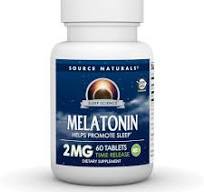During pregnancy, many women experience changes in their sleep patterns due to hormonal fluctuations and physical discomfort. Sleep disturbances can have a significant impact on the overall well-being of expecting mothers, as adequate rest is crucial for both maternal health and fetal development. One common approach to managing sleep issues during pregnancy is the use of melatonin supplements.
Melatonin is a hormone naturally produced by the pineal gland in response to darkness, helping regulate the sleep-wake cycle. It plays a key role in promoting healthy sleep patterns and has been studied for its potential benefits in improving sleep quality and duration.
For pregnant women experiencing insomnia or disrupted sleep, melatonin supplementation may offer a safe and effective solution. However, it is essential to consult with a healthcare provider before starting any new supplement regimen during pregnancy. While melatonin is generally considered safe for short-term use, its long-term effects on fetal development are not yet fully understood.
Research on the use of melatonin during pregnancy is limited, and more studies are needed to determine its safety and efficacy for expectant mothers. Some studies suggest that melatonin supplementation may help improve sleep quality in pregnant women without adverse effects on maternal or fetal health.
It’s important to note that melatonin supplements are not regulated by the Food and Drug Administration (FDA) in the same way as prescription medications. Therefore, it’s crucial to choose high-quality products from reputable manufacturers and follow recommended dosages provided by healthcare professionals.
In conclusion, melatonin supplementation may be a viable option for pregnant women struggling with sleep disturbances. However, it’s essential to weigh the potential benefits against any risks and consult with a healthcare provider before incorporating melatonin into your prenatal care routine.
8 Essential Tips for Safe Melatonin Use During Pregnancy
- Consult with a healthcare provider before taking melatonin during pregnancy.
- Avoid high doses of melatonin while pregnant.
- Choose a reputable brand of melatonin if considering supplementation during pregnancy.
- Be aware of potential side effects of melatonin on both the mother and the baby.
- Consider non-pharmacological methods to improve sleep quality during pregnancy.
- Monitor your sleep patterns and discuss any concerns with your healthcare provider.
- Ensure you are getting enough natural sources of melatonin through diet and lifestyle choices.
- Prioritize good sleep hygiene practices to promote healthy sleep during pregnancy.
Consult with a healthcare provider before taking melatonin during pregnancy.
It is crucial to consult with a healthcare provider before considering the use of melatonin supplements during pregnancy. Healthcare professionals can provide personalized guidance based on your individual health needs and pregnancy status. They can offer valuable insights on the potential risks and benefits of melatonin supplementation, ensuring that any decisions made align with the well-being of both the mother and the developing fetus. Prioritizing open communication with your healthcare provider is essential for making informed choices regarding melatonin usage during pregnancy.
Avoid high doses of melatonin while pregnant.
It is crucial for pregnant women to avoid high doses of melatonin supplementation during pregnancy. While melatonin is generally considered safe for short-term use, excessive amounts may pose potential risks to both maternal and fetal health. High doses of melatonin could disrupt the delicate balance of hormones in the body and may have unknown effects on the developing fetus. It is always recommended to consult with a healthcare provider before starting any new supplement regimen, including melatonin, to ensure the safety and well-being of both the mother and the baby.
Choose a reputable brand of melatonin if considering supplementation during pregnancy.
When considering supplementation with melatonin during pregnancy, it is crucial to prioritize safety and quality by selecting a reputable brand of the supplement. Opting for a trusted manufacturer ensures that the melatonin product meets high standards of purity and potency, reducing the risk of potential contaminants or inconsistencies in dosages. By choosing a reputable brand, pregnant women can have greater confidence in the quality and effectiveness of the melatonin supplement they are incorporating into their prenatal care routine. Consulting with a healthcare provider before starting any new supplement regimen is always recommended to ensure that it aligns with individual health needs and pregnancy conditions.
Be aware of potential side effects of melatonin on both the mother and the baby.
It is crucial for pregnant women considering melatonin supplementation to be aware of the potential side effects that may impact both the mother and the baby. While melatonin is generally considered safe for short-term use, its long-term effects on fetal development are not fully understood. Possible side effects of melatonin in pregnancy could include drowsiness, changes in blood pressure, and hormonal imbalances. It is important to consult with a healthcare provider before starting any new supplement regimen to ensure the safety and well-being of both the mother and the baby.
Consider non-pharmacological methods to improve sleep quality during pregnancy.
When addressing sleep issues during pregnancy, it’s important to consider non-pharmacological methods to improve sleep quality before turning to supplements like melatonin. Non-pharmacological approaches such as establishing a consistent bedtime routine, creating a comfortable sleep environment, practicing relaxation techniques, and engaging in light physical activity during the day can all contribute to better sleep patterns for expectant mothers. These holistic strategies not only promote restful sleep but also support overall maternal well-being and fetal development without potential risks associated with medication use.
Monitor your sleep patterns and discuss any concerns with your healthcare provider.
Monitoring your sleep patterns during pregnancy is essential for maintaining your overall well-being and ensuring adequate rest for both you and your baby. If you are experiencing sleep disturbances, such as insomnia or frequent awakenings, it is crucial to discuss these concerns with your healthcare provider. They can provide guidance on managing sleep issues during pregnancy, including the potential use of melatonin supplements. By keeping track of your sleep patterns and seeking professional advice when needed, you can take proactive steps to promote better sleep quality and support a healthy pregnancy journey.
Ensure you are getting enough natural sources of melatonin through diet and lifestyle choices.
During pregnancy, it is important to ensure that you are getting enough natural sources of melatonin through your diet and lifestyle choices. Incorporating foods rich in melatonin, such as cherries, grapes, tomatoes, and nuts, can help support healthy sleep patterns without the need for supplementation. Additionally, practicing good sleep hygiene, such as maintaining a consistent bedtime routine, creating a dark and quiet sleep environment, and limiting screen time before bed, can also enhance your body’s natural production of melatonin. By prioritizing natural sources of melatonin through your diet and lifestyle habits, you can promote better sleep quality during pregnancy while minimizing the need for external supplements.
Prioritize good sleep hygiene practices to promote healthy sleep during pregnancy.
During pregnancy, it is crucial to prioritize good sleep hygiene practices to promote healthy sleep. Establishing a consistent bedtime routine, creating a comfortable sleep environment, and practicing relaxation techniques can help expecting mothers improve their sleep quality and duration. By maintaining a regular sleep schedule, avoiding stimulants close to bedtime, and managing stress levels effectively, pregnant women can support their overall well-being and enhance the chances of experiencing restful nights. Incorporating these good sleep hygiene practices alongside any recommended melatonin supplementation can contribute to better sleep during pregnancy.




